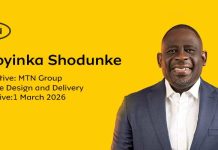Singapore’s three biggest telecommunication companies announced that they have chosen Sweden’s Ericsson and Finland’s Nokia as the main equipment suppliers for their 5G networks, mostly leaving China’s Huawei Technologies out in the cold.
Singapore’s biggest telecom operator, Singapore Telecommunications will use Ericsson equipment, while the StarHub-M1 consortium has opted for Nokia gear. Singapore’s government officially granted 5G operating licenses to the telecom companies on Wednesday.
The same day, U.S. Secretary of State Mike Pompeo, who over the years have been on a crusade to persuade countries to ditch Huawei, said that “the tide is turning against Huawei as citizens around the world are waking up to the danger of the Chinese Communist Party’s surveillance state.”
“The momentum in favor of secure 5G is building,” Pompeo said in a press statement. “The more countries, companies, and citizens ask whom they should trust with their most sensitive data, the more obvious the answer becomes: Not the Chinese Communist Party’s surveillance state.”
Singapore will begin rolling out 5G service in January 2021, aiming to cover all of the city-state by the end of 2025.
“Our process did not exclude any vendor,” said S. Iswaran, communications and information minister, during a virtual news conference on Wednesday. He stressed that the focus of selection was on security, resilience and performance, and emphasized that the move was not a rejection of Huawei, which has been mostly barred from operating in the U.S.
Another bidder, Australia’s TPG Telecom, which partnered with Huawei, failed to obtain a nationwide 5G license. It will be allowed to deploy 5G networks in some areas and facilities.
StarHub, the country’s second-largest telecom company, said that other than for core infrastructure such as base stations, it will use equipment made by several companies, including Huawei.
Singapore has called 5G an essential driver of economic competitiveness. The new 5G networks, which offer data transmission speeds up to 100 times faster than 4G, are expected to give a boost to businesses using advanced technologies such as the Internet of Things.
An increasing number of countries are only allowing “trusted vendors” rather Huawei to develop their 5G infrastructure, Pompeo said in his Wednesday statement.
The U.S. state secretary also praised so-called “clean telcos” including India’s Reliance Jio, Australia’s Telstra, South Korea’s SK Telecom and KT and Japan’s Nippon Telegraph & Telephone for rejecting Huawei equipment.











